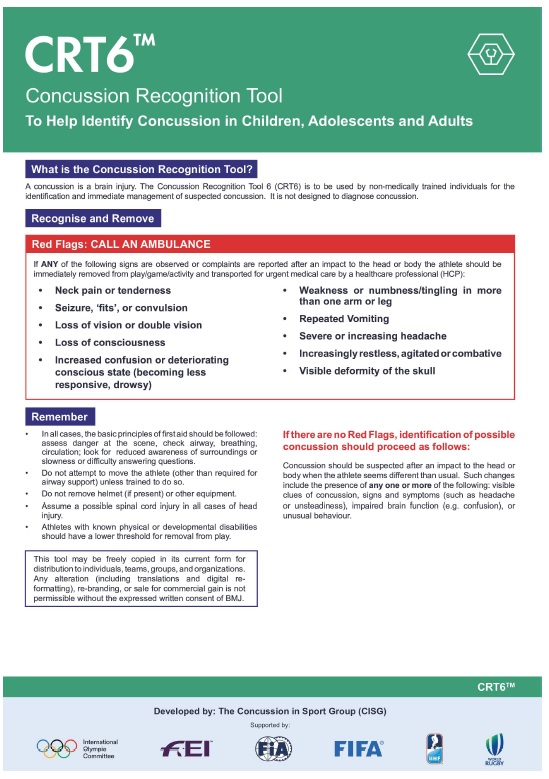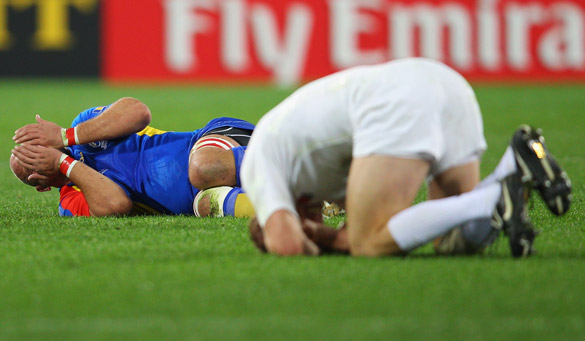Concussion
Tackle concussion
- Don't lose your head, read the signs instead
- Concussion makes no sense - a confused player may be concussed
- If in doubt, sit them out
- Don't risk your brain to win a game
Concussion should be regarded as a significant injury and taken seriously. It is a functional injury that affects the way the brain works through processing and dealing with information. Although it is commonly caused by a blow to the head, it can come from a blow to the body, where the force of the collision is transmitted up to the brain. It is more often not associated with loss of consciousness.
Concussion has many different signs and symptoms. Common symptoms include poor concentration, memory loss and balance difficulties. Tools such as the Pocket Concussion Recognition Tool™ are a useful adjunct that may help with the diagnosis of concussion.
If an athlete has a suspected concussion, he/she should be removed from the field of play and not allowed to return. A concussed player will have difficulty processing the game happening around them and will let the team down as well as putting themselves at risk of greater injury. Anyone removed due to suspected concussion should be assessed by a doctor as soon as is practically possible. They should not be left alone and allowed to drive a motor vehicle. Return to Sport should follow an individualised rehabilitation using a graduated approach.


Pocket Concussion Recognition Tool 6™
What should you do if a player has a suspected concussion?
- Remove from pitch.
- Do not leave alone.
- Do not allow to drive motor vehicle.
- Same day medical review.
- Individualised rehabilitation using a graduated return to sport protocol.
- For community rugby there is a minimum 21 days stand down from rugby.

A clash of heads is often the cause of concussion